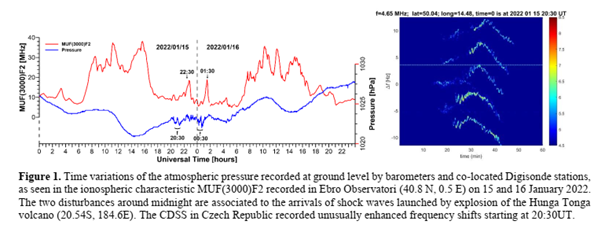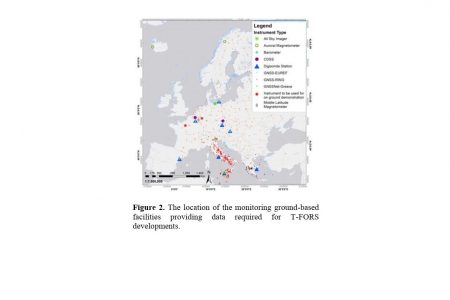Awarded HORIZON 2022 project at EPSS
The proposal T-FORS (TRAVELLING IONOSPHERIC DISTURBANCES FORECASTING SYSTEM) submitted to the HORIZON 2022 SPACE-01 Call has received a positive evaluation. The project will start in the end of this year after the Grant Agreement Preparation. Nine European countries will participate in the project, as follows: Greece, Italy, France, Czech Republic, Germany, Spain, Belgium and Bulgaria. Hungary will be represented by the Institute of Earth Physics and Space Science (EPSS). Veronika Barta, Kitti Berényi and Attila Buzás from the EPSS are involved in the implementation of the project.
Summary of the project:
Travelling Ionospheric Disturbances (TIDs) constitute a specific type of space weather disturbance affecting the performance of critical space and ground infrastructure by disrupting operations and communications in multiple sectors. T-FORS aims at providing new models able to interpret a broad range of observations of the solar corona, the interplanetary medium, the magnetosphere, the ionosphere and the atmosphere, and to issue forecasts and warnings for TIDs several hours ahead. Machine Learning techniques are used to train the models based on existing databases developed in the frames of past Horizon 2020 projects, to estimate the occurrence probability of medium scale TIDs and to forecast the occurrence and propagation of large scale TIDs. Prototype services are developed based on specifications from the users’ community and following harmonized standards and quality control similar to the best practices of meteorological services. On ground demonstration tests are organised by aerospace and civil protection agencies, to validate the performance of the T-FORS prototype services. A comprehensive architectural concept is proposed, including the densification of ground instrument networks, and new space missions, and possible future adjustments in order to develop a real-time operational service fully compliant and complementary to the ESA Space Weather services.
An example: detection of a TID caused by the Hunga Tonga volcanic eruption.





